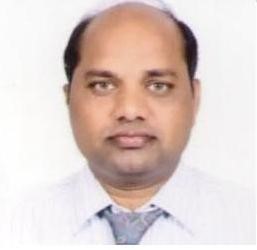- 27 April, 2025
- Contact Us
- New Mail
- Skip To Main Content
- Screen Reader Access

| Designation: |
Sr. Principal Scientist
|
| Email Id: | gk_khadse[at]neeri[dot]res[dot]in |
| Qualification: | Ph.D, M.Sc.(Agri) |
| Specialization: |
Soil Science
|
| Address: |
Vertical 1B: Water Resource, NEERI, Nagpur
|
| Biodata: |
| Sr. No. | Publication Name |
|---|---|
| 1 |
Assessment of Assimilative Capacity of Kanhan River Stretch Using Mike-11 Modeling Tool
|
| 2 |
Cadmium Removal from Aqueous Solutions Using Dried Banana Peels as an Adsorbent: Kinetics and Equilibrium Modeling
|
| 3 |
Performance Evaluation of Solar Power Based Electrolytic Defluoridation Plants in India
|
| 4 |
Surveillance of Drinking Water Quality for Safe Water Supply—A Case Study from Shillong, India
To ascertain the quality of drinking water being supplied and maintained, it is necessary to conduct water quality surveillance for evolving suitable strategy for future planning. In the present investigation, water quality was monitored in treatment plants, service reservoirs, and at consumer ends in three seasons to assess the baseline water quality status at Shillong in Meghalaya. There are three water treatment plants at Shillong namely Umkhen, Mawlai and GSWS with design capacities of 1.5, 3.4 and 34 Million liter per day (MLD) respectively. Each treatment plant is having rapid sand filtration followed by disinfection. The study reveals that the physico-chemical parameters of water quality at consumer end meets Indian drinking water quality standards (BIS 1991) after conventional treatment followed by disinfection, whereas the bacteriological parameters for raw water sources exceed the permissible limit indicating the treatment need for drinking purposes. Throughout year the average feacal coliform contamination at service reservoir and to consumer end were found as 44 to 156 CFU/100 ml which may be attributed to the general management practices for maintenance of service reservoirs and the possibility of en route contamination. |
| 5 |
Change in drinking water quality from source to point of-use and storage: a case study from Guwahati, India
To ascertain the quality of drinking water being supplied and maintained at Guwahati, the study was conducted on the status of water supply in city through surveillance of drinking water quality for consecutive 7 days at various treatment stages, distribution network and consumer ends. The performance of five water treatment plants (WTPs), viz. Panbazar WTP, Satpukhuri WTP, Kamakhya WTP, PHED WTP and Hegrabari WTP were assessed for summer, piost-post-monsoon and winter seasons. No significant change in raw water quality was observed on day-to-day basis. Residual chlorine was found in the range of nil to 0.2 mg/L in the treated water. During post-monsoon, winter, and summer seasons the thermotolerent TC and FC counts ranged between Nil to 168 CFU/100 ml and Nil to 84 CFU/100 ml; Nil to 3356 CFU/100 ml and Nil to 152 CFU/100 ml; and Nil to 960 CFU/100 ml and Nil to 108 CFU/100 ml respectively. There was variation in bacterial counts among the different service reservoirs and consumer ends, which may be attributed to the general management practices for maintenance of service reservoirs and the possibility of enroute contamination. Evaluation of the raw water quality indicate that the water is suitable for drinking after conventional treatment followed by disinfection. The finished water quality meets the level of standards described as per Bureau of Indian Standard specifications (BIS:10500 1991) for potability in terms of its physico-chemical characteristics. |
| 6 |
Conservation, Development and Management of Water Resources: An Experience in Himalayan Region, India
|
| Sr. No. | Training Program Title |
|---|---|
| 1 |
Training programme on water quality monitoring and surveillance for chemists and the microbiologists of DWSD dealing with rural drinking water supply
In order to address the various drinking water supply and water quality issues in the state of Jharkhand and to undertake the suitable mitigation measures, the MoU was signed between Drinking Water Supply and Sanitation Department (DWSD), Government of Jharkhand, Ranchi and CSIR-National Environmental Engineering Research Institute, Nagpur (CSIR-NEERI), Nagpur and the proposals were sought from CSIR-NEERI, Nagpur from DWSD, Ranchi. It is proposed to conduct training for newly inducted chemists and microbiologists of DWSD in CSIR-NEERI, Kolkata Regional Centre, Kolkata with support from CSIR-NEERI, Nagpur. |